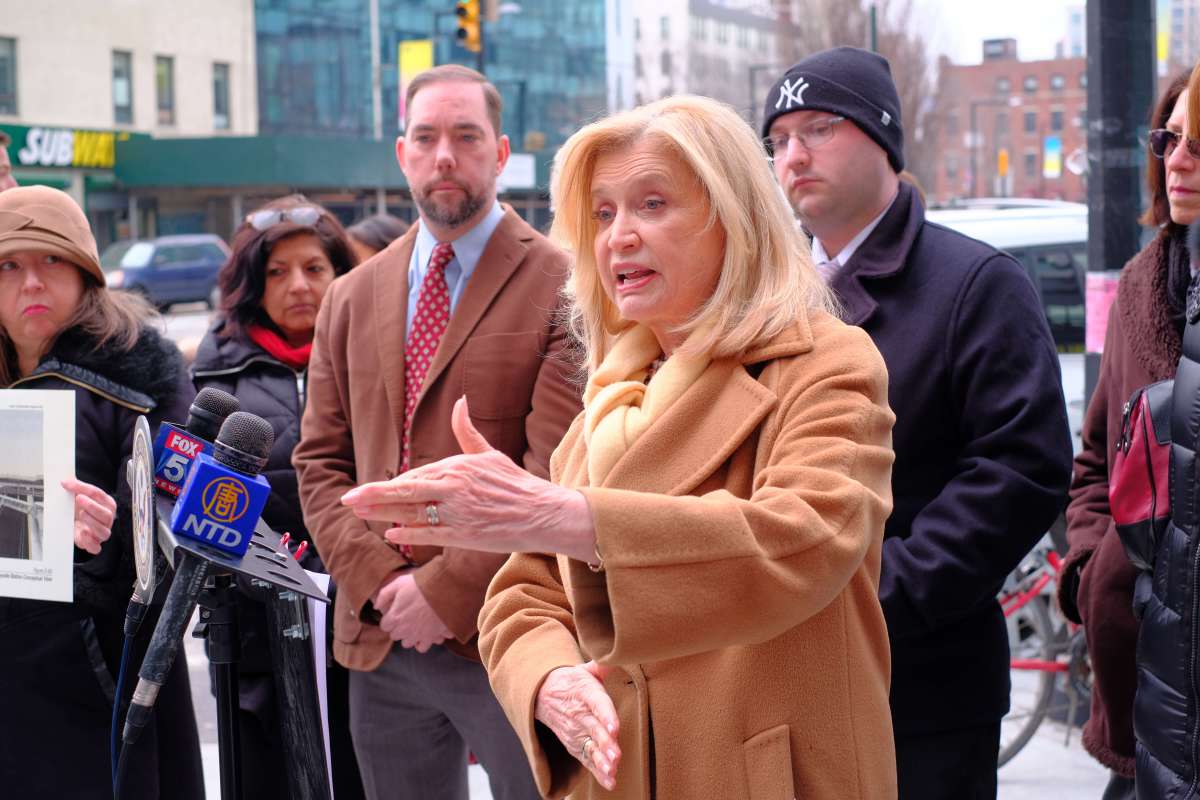Queens lawmakers are applauding the U.S. Supreme Court’s decision announced on Thursday that temporarily blocks the Trump administration’s attempt to put a citizenship question in the 2020 census.
The ruling handed down on June 27 comes nearly a year after the U.S. Commerce Department, which oversees the census, overruled the unanimous advice of Census Bureau experts and approved the controversial question, “Is this person a citizen of the United States?”
Congresswoman Carolyn Maloney, the co-chair of the House Census Caucus, had warned that a citizenship question would lead to immigrant families to not fill out the form leading to an undercount which would have drastic effects in the five boroughs.
“The importance of counting every person cannot be overstated, which is why I am working with my colleagues and with community groups on the ground in New York to make sure we fulfill our Constitutional duty,” Maloney said. “New York alone receives $73 billion per year based on census data for critical and lifesaving programs. Businesses, large and small, rely on census data in deciding how to effectively grow their businesses and with it, the American economy and our communities. And of course, census data is used to assign seats in the House of Representatives, apportion votes in the Electoral College, and draw legislative districts at every level of government. It is literally the backbone of our democracy. We cannot afford to get it wrong and we will not let this partisan sabotage win.”
The decision comes two days after Maloney took to the House floor to release documents directly linking Commerce Secretary Wilbur Ross’s decision to add the citizenship question to Thomas Hofeller, known to the GOP as the Michaelangelo of gerrymandering.
“These documents prove that adding the citizenship question was never about voting rights, in fact, it was about the opposite,” Maloney said. “It was to disenfranchise voters all across the country and rig the electoral college and distribution of congressional districts in the GOP’s favor.”
Following the decision Thursday, Maloney said. “The Supreme Court’s ruling confirmed what we have been saying all along, the Trump administration’s claim that they needed the citizenship question to better enforce the Voting Rights Act was a lie.”
Last April, Queens Borough President Melinda Katz signed an amicus brief to the Supreme Court, along with nearly 200 other elected officials from across the country, opposing the inclusion of the citizenship question.
“Queens maintains the citizenship question is discriminatory, especially as it was designed to weaponize the census in order to dilute resources, representation and minority voting power,” Katz said. “While the fight to ensure a fair count is far from over, the Supreme Court’s decision today to temporarily block this question is incredibly encouraging. There is still much work to do to ensure that every Queens resident is counted accurately in the 2020 Census, because an undercount is something Queens simply cannot afford.”
State Senator Toby Ann Stavisky was the only state senator in Queens to sign on to the amicus brief after the 2010 Census showed that only 22% or residents in her district were native-born and that 78% of households spoke a language other than English at home.
“From day one, the Trump administration has done everything it can to hurt the immigrant population across this country,” Stavisky said. “Like many of his other policies, the purpose of adding the citizenship question was to incite fear into a vulnerable population while stealing resources and power from our communities. People can now answer the census without fear of deportation.”
Congresswoman Grace Meng, who addressed the citizenship question during an appearance with House Speaker Nancy Pelosi in Elmhurst this week, called the blatant weaponization of the census was unconscionable and shameful.
“We will not be erased, we will not be underrepresented, and we must make every attempt to ensure that everyone is counted,” Meng said. There are no do-overs with the census; a mistake is a 10-year mistake.”





































